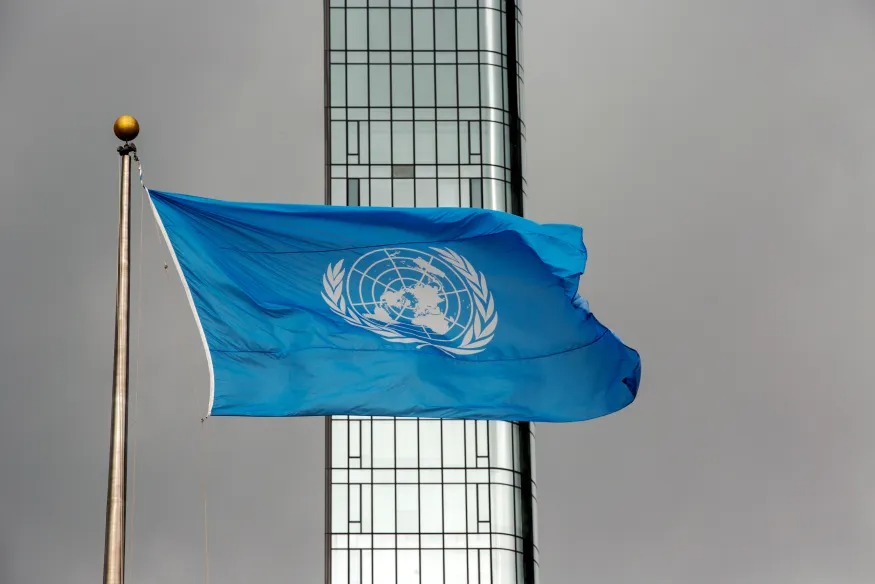United Nations aid agencies are making historic layoffs and budget cuts after former U.S. President Donald Trump ended key foreign aid programs. The World Food Programme (WFP), UNICEF, and UNHCR are among those scaling back lifesaving support across the globe.
Former U.S. President Donald Trump slashed foreign aid during his term, triggering a wave of funding shortfalls. As a result, major UN organizations now face sharp reductions in staff, services, and operations. Trump gave wide authority to the Department of Government Efficiency (DOGE), led by Elon Musk, to reduce international aid spending.
This move comes as global needs are rising. Millions depend on the UN for food, shelter, and medical help—services now at risk.
WFP Plans Largest Job Cuts in 25 Years
The World Food Programme relied on the U.S. for nearly half of its funding. Now, it’s preparing to lay off up to 30% of its global staff. These cuts are the largest the organization has seen in over two decades.
An internal memo confirmed that every division, region, and staff level will be affected. WFP says it will prioritize emergency food support for 343 million people, narrowing its focus to only the most critical needs.
UN spokesperson Stéphane Dujarric stated that Secretary-General António Guterres is “deeply concerned” about the fallout. The agency has already begun reviewing all active programs to determine which ones can continue.
Refugee Services Face Sharp Cutbacks
The UN Refugee Agency (UNHCR) also announced sweeping changes. Headquarters and field offices will shrink by 30%, and half of all senior leadership roles will be eliminated.
This reduction comes amid growing displacement crises worldwide. In Sudan, more than 500,000 people could lose access to clean water. The impact in other regions is just as severe.
In Lebanon, where over a million Syrian refugees live, UNHCR is only 15% funded. Spokesperson Lisa Abou Khaled said the agency already stopped cash aid for 347,000 refugees, with another 200,000 expected to lose help by June. Primary healthcare services for 40,000 individuals have also ended.
UNICEF and IOM Brace for Budget Shortfalls
The child-focused agency UNICEF forecasts a 20% drop in its 2025 funding, risking hard-won progress in health and education. While the organization has already made efficiency improvements, it now faces deeper cuts.
Similarly, the International Organization for Migration (IOM) has lost 30% of its budget. The result? Layoffs affecting 6,000 workers and a 20% reduction in headquarters staff. Programs supporting displaced families and migrants are being scaled down or suspended.
Why Global Aid is in Decline
Even before Trump’s decision, many donor countries had started pulling back on foreign aid. Rising inflation, domestic political pressure, and shifting national priorities all contributed to the downward trend.
Now, with the U.S. exiting as the top donor, the financial gap has widened dramatically. UN insiders warn that unless new support arrives soon, the consequences could be devastating.
Growing Global Needs, Shrinking Support
Humanitarian needs are growing, not shrinking. In conflict zones, refugee camps, and climate-affected regions, demand for basic services has never been higher.
However, without stable funding, organizations like WFP and UNHCR can no longer meet those needs. Some programs have already been suspended. Others may vanish completely in the coming months.
In Central America, reintegration programs for families have stopped. In parts of the Middle East, food deliveries have slowed. And in Africa, lifesaving health initiatives are on hold.
What’s Next for the UN?
UN leaders are now urging wealthy nations to step in. They are calling for emergency pledges, long-term funding, and stronger partnerships to avoid further collapse. Yet, with many governments focused on domestic issues, the path forward remains uncertain.
The current situation shows how fragile the global aid system can be. A single funding shift has left millions more vulnerable.
The recent funding cuts are not just numbers on a page—they represent meals not delivered, clinics not staffed, and families left in crisis. As agencies brace for deeper reductions, the global community must act.
